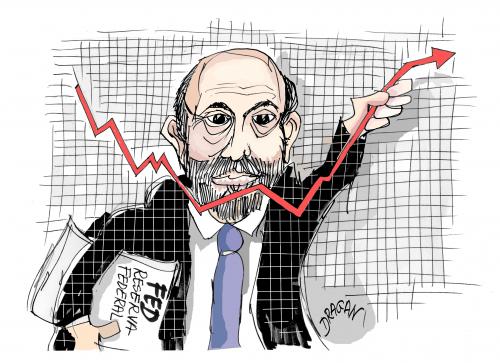
I want to be bullish.
Really I do. Being bullish is much more fun than being bearish. According to Bloomerg: In the midst of the Great Depression, people who bet on stock-market declines were considered unpleasant, unwanted, un-American, un-something. Yet as a New York Times writer noted in February 1932, “The bearish speculator is not often reviled in healthy markets; it is when prices are declining that opprobrium is heaped upon him.”
That’s not what’s happening now. It has become so out of vogue to be bearish now that many fund managers I talk to are insulted that I should question their bullish positions. Being bullish has become the new religion whose Gods are Ben Bernanke, China, the BOJ and the ECB – beings of supreme power who can move the markets with a word and will never, ever let them go down again – all you have to do is BELIEVE!

There are still some heretics out there as put contracts against Europe are at their highest level since the July/August collapse. The iShares MSCI EAFE Index Fund (EFA) is matching its highest levels in the last six months, but a huge put spread dominated its option activity Friday. Options to protect against a 10% drop in the EFA cost 71% more than contracts betting on a 10% gain, according to data compiled by Bloomberg. Put volume jumped to a record on Feb. 24. The ETF has gained 16% since global equities bottomed last year on Oct. 4th.
The May $52/43 bear put spread is the hot trade on EFA (over 100,000 contracts at net $1.14) at the moment although EFA hasn’t been at $43 since April 2009. It’s an $11M bet that Europe is going down but maybe it’s just a hedge on $100M worth of bullish positions – it’s hard to tell with these things…
There’s still plenty of bad news out there, most notably today that the S&P finally realized Greece has defaulted on it’s debt by forcing bondholders to accept 53% less than they were owed (I know – SHOCKING!). What’s actually shocking is the reaction this caused by the ECB, who have now “temporarily,” but immediately “suspended the eligibility of marketable debt instruments issued or fully guaranteed by the Hellenic Republic for use as collateral in Eurosystem monetary policy operations.”




